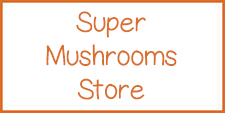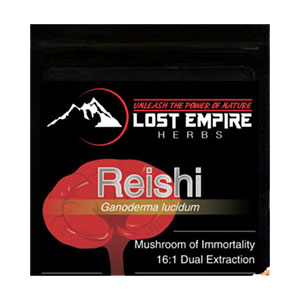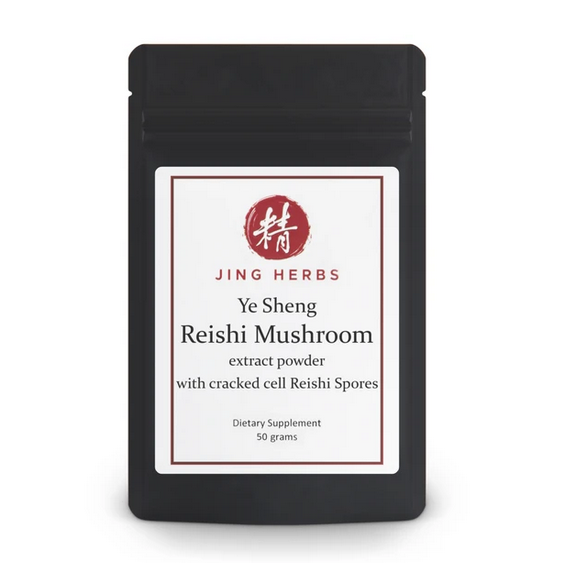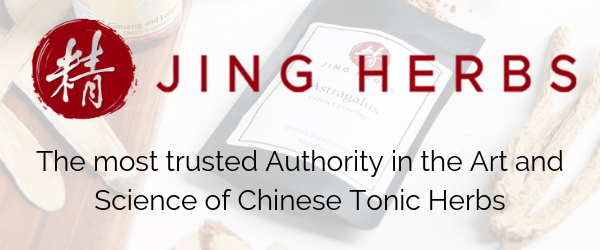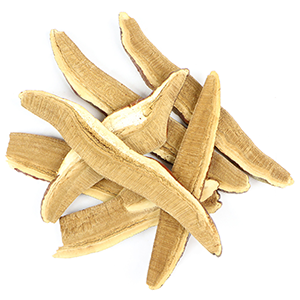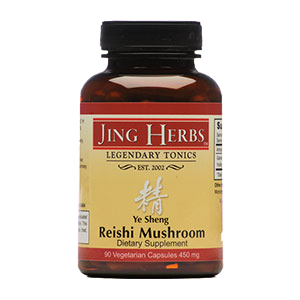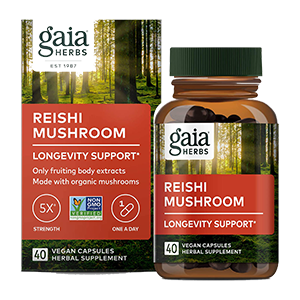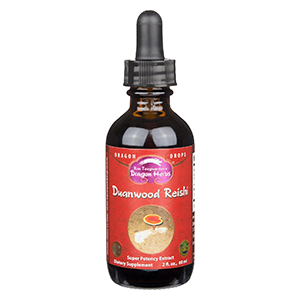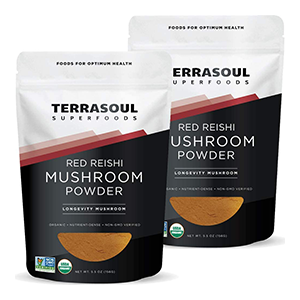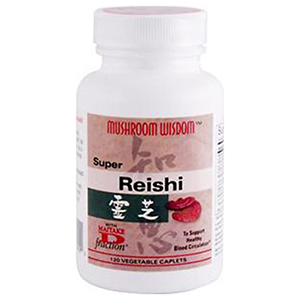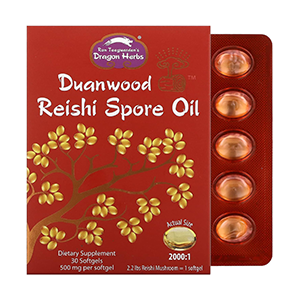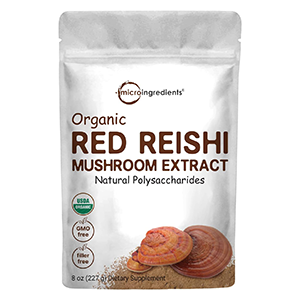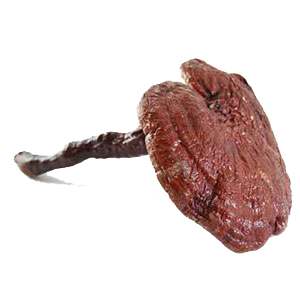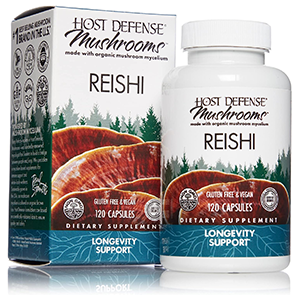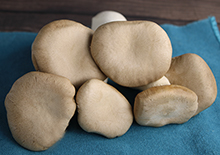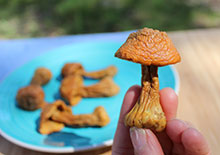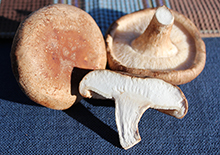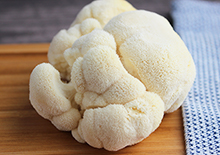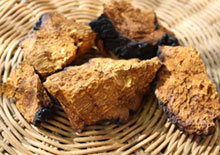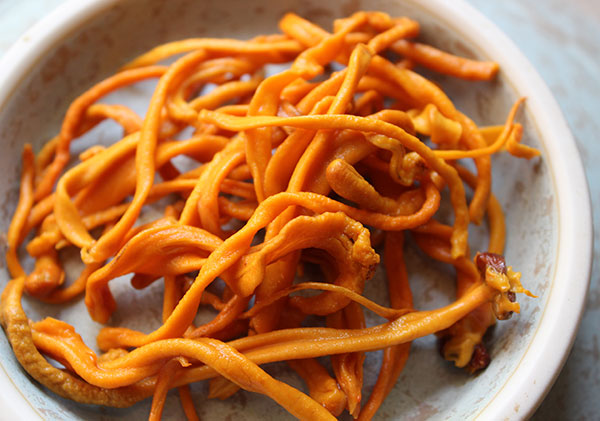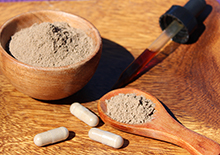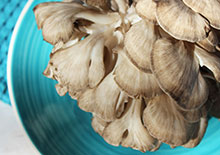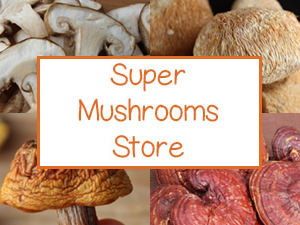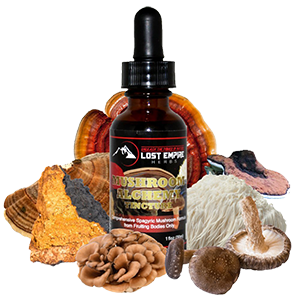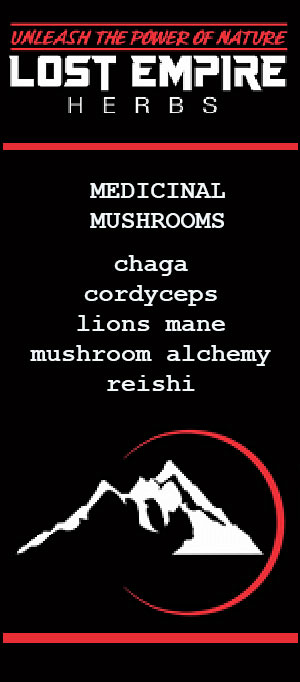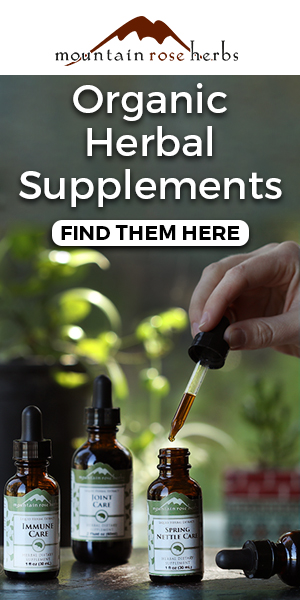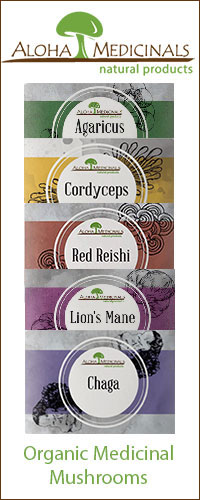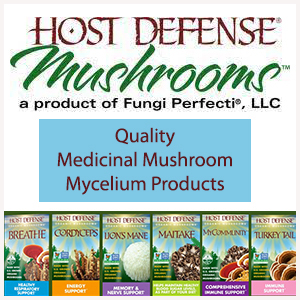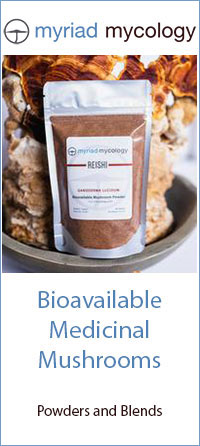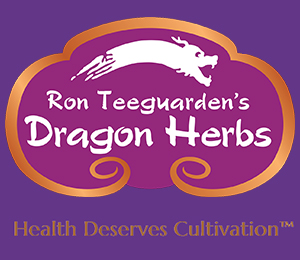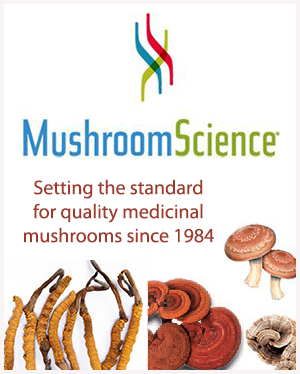- Home
- Super Mushrooms
- Reishi Mushroom
Reishi Mushroom Benefits, A Shen Tonic and Immune Modulator
Intro | What is Reishi? | Benefits | What are Reishi Mushroom Spores? | Types | How to Use | Precautions | Shop
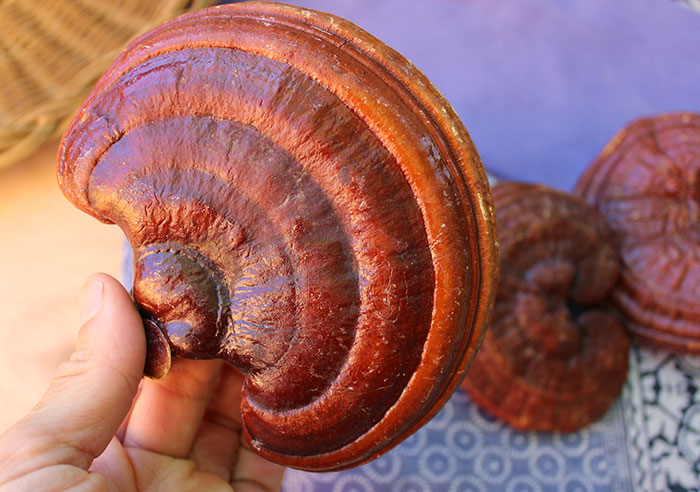
Reishi mushroom is one of the oldest mushrooms known to be used medicinally by humans. It is highly prized as a major tonic in Chinese herbalism, ranking close to ginseng for its broad spectrum of health benefits.
Often referred to as "the mushroom of immortality", it has been valued as a longevity herb in Asian cultures for well over 2,000 years.
Table of Contents
Intro | What is Reishi? | Benefits | What are Reishi Mushroom Spores? | Types | How to Use | Precautions | Shop
Also called "the great protector" due to its qualities as an adaptogen, reishi helps to guard against the impact that physical, immunological and mental stress can have on the body over time.
When taken on a consistent basis, it assists in modulating immune response with effects that calm and protect the central nervous system as well as support liver and cardiovascular functions.
Reishi's active ingredients include water-soluble polysaccharides and peptidoglycans, in addition to more than 100 triterpenes, depending on the strain and quality. Over 50 of the triterpenes are found to be specifically unique to the Ganoderma lucidum species.
One primary triterpene called ganoderic acid, in addition to other sterols like ganoderal, ganoderiol, ganodermic acid and lucidenic acid, are known to provide a tumor inhibiting and hepatoprotective influence. (Source)
The mycelium additionally contains many other different constituents including peptides, nucleotides and other elements common to medicinal mushrooms like mannitol, coumarin and various alkaloids, all of which add to the mushrooms properties as an immunomodulator and anti-inflammatory agent.
Typically consumed as a tea, powdered hot water extract or used as a tinctured alcohol solution, preparations commonly use the fruiting body of the mushroom. However, more modern-day high quality versions usually always include reishi spores, newly identified for their higher amount of triterpenoid content.

According to herbalist Ron Teeguarden, it is a commonly prescribed treatment in Japan for chronic bronchitis, memory loss, insomnia, hyperlipidemia and a whole range of age-related degenerative diseases, including dementia.
Evidence documented in a 2013 study suggested that an extract of reishi mushroom inhibited the inflammatory mediator response by suppressing certain signaling pathways and "may be potentially useful in the treatment of neurodegenerative diseases."
What is Ganoderma lucidum or Reishi?
Ganoderma lucidum is a polypore mushroom that is native to woodland regions of China but now grows in forests as far north as Canada. Some species are also found in the Amazon and even parts of Africa where humid conditions persist.
Reishi grows wild on decaying wood or at the base of trees (particularly maple), but is not as prolific as other mushroom varieties like turkey tail or chaga.
Red reishi mushroom, or Ganoderma lucidum, is the most common type used for medicinal purposes and is now widely cultivated on logs or wood chip cakes in Asian countries. There are also six other species of reishi in the genus Ganoderma, commonly differentiated by their color and benefits to different organ systems. These types include the more common black reishi or Ganoderma sinensis, in addition to white, yellow, green and the rare purple reishi variety.
Unlike other mushrooms, reishi typically has an unusual woody, cork-like texture and a unique glossy varnished-looking appearance. Ganoderma lucidum is derived from the Greek words gano and derma, which translates "sheen skin" and the Latin word lucidum which means "shining." The fruiting body or cap is rounded on one side with a kidney-type shape, a lighter colored edging and a patchy white to light brown underside.
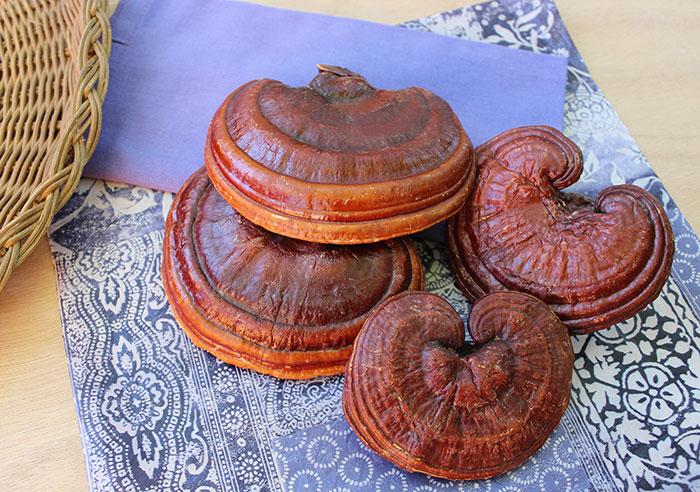
Historical Use in Asian Cultures
Also called lingzhi in Chinese, reishi was historically used in China, Japan, Korea and other Asian countries for promoting health and encouraging a "long life." Li Ching-Yuen, the legendary longest living man believed to have lived to the age of 252, was claimed to have consumed daily tonic brews and tinctures consisting of reishi as well as ginseng, fo-ti root, gotu kola and goji berries.
According to the historic Chinese herbal classic, the Shennong Ben Cao Jing, "Long term consumption [of reishi mushroom] will lighten the body and prevent aging, extend one's life, and make one an immortal." In the first volume of Shennong's Materia Medica, reishi is listed next to other top tonics such as ginseng and eucommia bark.
Held in high regard by ancient Taoist masters, reishi is one of the chief Shen tonics known for its ability to induce meditative states and encourage spiritual awareness. Once reserved for emperors and the ruling elite, the reishi mushroom was often found embroidered on imperial clothing, carved into stone and architecture, incorporated in legendary folk stories and painted into famous artwork.
In Traditional Chinese Medicine, reishi is valued as premiere Chi (Qi) and Shen major tonic herb, but also strengthens Jing. It is beneficial to the heart, liver, lung and kidney organ systems.
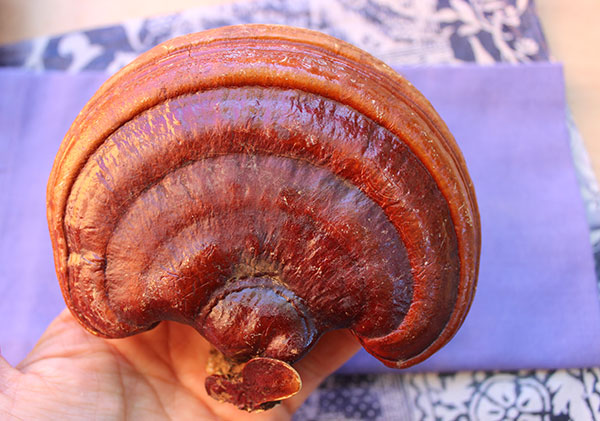
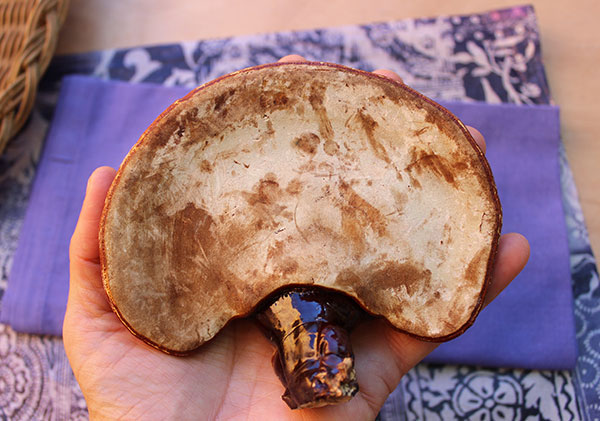
Reishi Mushroom, Ganoderma lucidum Benefits
1) An Immune System Modulator
2) Ganoderic Acid and Liver Support
3) Reishi is a Shen Tonic
4) Good for Insomnia
5) Reishi Benefits and the Heart
An Immune System Modulator
Containing beta-glucan polysaccharides, reishi mushroom is an adaptogen that works to adjust and fine tune the immune system, beneficial for restoring healthy immune functions.
Lingzhi is often referred to as an "immune modulating" tonic, which means that it can work to regulate immune response whether deficient or excessive depending on what is most appropriate for each unique individual situation.
"Our immune system is virtually a miraculous network of activities designed over millions of years. It is much better to resist foreign invaders from within a fully nourished system and not become ill in the first place." Ron Teeguarden
It is our personal belief that, in this day and age, it is important to keep our immune systems strong by fortifying it on a regular basis with adaptogens like reishi. This is a preventative approach to sickness and disease that can also help to protect us from various autoimmune conditions, which are becoming increasing more prevalent in today's modern world.
Like other adaptogens, lingzhi offers a protective element that helps one make necessary adjustments needed to deal with change and life challenges, decreasing cellular sensitivity to certain stress factors.
Consuming reishi teas or extracts on a regular basis is subsequently known to reduce the effects that daily stress and anxiety can have on the body over time.
Ganoderic Acid and Liver Support
Ganoderma lucidum contains a group of antioxidant triterpenes called ganoderic acid. Ganoderic acid is known in Chinese herbalism to protect and support the functions of the liver.
As a liver tonic, lingzhi can help to cleanse and nourish the blood and its antihepatotoxic compounds, like ganoderic acid A and ganoderic acid B, are believed to guard against liver damage. In one 2013 study, the ganoderic acid found in reishi was shown to protect mice from liver injury and in an earlier study was identified as a potentially therapeutic substance for those with hepatitis B. (*)
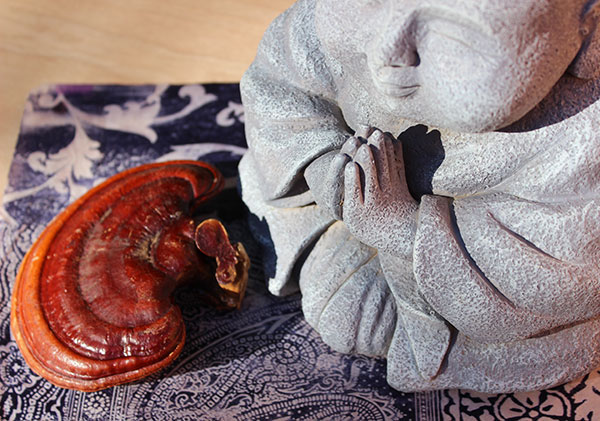
Reishi is a Shen Tonic
Learn more about why reishi is our top favorite.
The Chinese word for reishi, lingzhi, means “herb of spiritual potency.” Although it is tonifying to all "three treasures" (Jing, Qi and Shen), it is considered a particularly potent "Shen" tonic. Working with the heart and kidney organ systems, it helps to calm the nerves and promotes a clear and peaceful state of mind.
Encouraging a meditative state, helpful in developing spiritual awareness, it has been used throughout history by Taoist monks and spiritual seekers to sharpen concentration skills, build will power and expand inner consciousness.
It is important to note that "wild" reishi mushrooms are particularly famed for their higher Shen-like qualities.
Good for Insomnia
Consistent use of decocted teas, extracts or spore concentrates is considered to be one of the top Chinese remedies for those who suffer from insomnia. This is most likely due to its adaptogenic effects that can work to simultaneously sooth the nervous system.
Although reishi is valued for its ability to help one achieve restful sleep, but is not considered to be sedative in nature.
Reishi Benefits and the Heart
The energetic attributes of red reishi are specific for the heart organ system and believed to "open and calm the heart" as well as boost heart Chi (Qi) in Traditional Chinese Medicine.
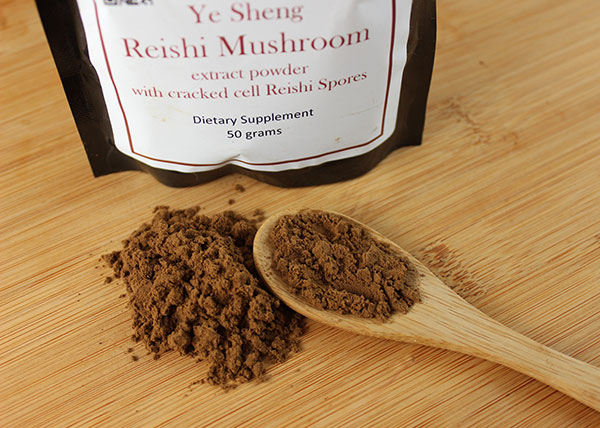
What are Reishi Mushroom Spores?
At the end of the reishi mushroom's growing season it releases millions of "spores", or very small microscopic seeds, which coat the fruiting body and naturally spread to surrounding habitats to generate more mushrooms. These spores are known to be extremely rich in triterpenes and can be collected as a powder which is cell wall cracked to make them medicinally absorbable to humans.
The spores also contain an oil which is commonly extracted for its triterpene concentrations. In addition, triterpene crystals, the most condensed form of triterpenes created from the spores, are also available through high-tech extraction methods.
Recent scientific attention has been given to Ganoderma lucidum spores because of their proven high triterpene content. According to North American Journal of Medical Sciences "the triterpenoids were found to be the most important active substances for its [reishi's] numerous pharmacological uses." In this same review it states that "Triterpenoids isolated from ganoderma spores showed significant anti-HIV-1 protease, antitumor, and anti-complement activities."
With the help of modern science, extracts are now available in the form of reishi spore oil, reishi spore powder and reishi spore triterpene crystals. They are definitely one of the most powerful ways to consume reishi for those who would like to take super concentrated doses. However, we also recommended simultaneously consuming the teas or powdered hot water extracts of the reishi fruiting body for the highest health benefits.
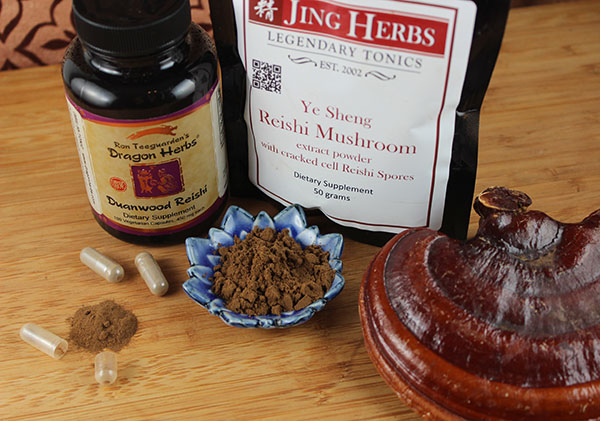
Types of Reishi Mushroom
- Whole Dried Mushrooms, Slices, Pieces or Powders - This is the dried mushroom fruiting body that should be simmered in hot water for 20 minutes or longer, strained and consumed as a tea.
- Powdered Hot Water Extracts - These are concentrated liquid tea solutions that have been spray dried to produce a powder.
- Reishi Spore Oil - This is a golden oil extracted directly from the cracked-cell spores (seeds) of the mushroom. The best quality is pure spore oil with no fillers or other additives. Comes in liquid or capsule form.
- Reishi Spore Powder - This reishi powder is created by cracking the cells of the reishi spores to make them digestible and appropriately utilized.
- Reishi Triterpene Crystals - These are the pure triterpene crystals concentrated via high-tech reishi spore extraction methods.
- Reishi Mycelium Biomass - This is a condensed powder produced from the white mycelium biomass before it forms the fruiting body. This is mostly a Western technique not commonly employed in Asian countries.
How to Use
Reishi mushroom, in all its forms, is best and most effective when consumed on a regular basis. Small doses taken throughout the day for the long term is better than high doses taken only for short periods of time.
Medicinal mushrooms need to be heated in water to break down the outer chitin shell. This releases the polysaccharides that are not otherwise bio-available to our digestive system in their fresh or dried state. Alcohol solutions are also used which work to specifically extract the triterpenes. For these reasons double extraction methods, using both hot water and alcohol, are commonly employed.
You can use the dried mushroom slices, pieces or powder alone or with other Chinese or Ayurvedic herbs and create your own tonic herbal formulations specific to your unique health goals. Whole mushrooms can be ground up in a Vitamix or other high speed blender for quality freshness and used in tea decoctions. (For a recipe using reishi see our Energy Tonic Tea)
Reishi is a bitter woody tasting mushroom with a slightly sweet flavor. Powdered extracts can be mixed into hot water or teas and sweetened to create a bittersweet coffee-like drink. These powders can also be blended into tonic elixirs, shakes and even desserts, like our chocolate cake recipe. Hot water extracts also come in capsule form for convenience.
Spore powders, reishi spore oil and triterpene crystals can likewise be integrated into drinks or mixed with water.
Reishi Mushroom Dosage
Follow the recommended dosage amount on the reishi product, usually most will give average to high dosage amounts which can be followed accordingly depending on your own unique body type and current health issues.
Reishi is one of our personal favorite top 10 superfoods, but for more on other medicinal mushroom varieties see our pages on: lions mane, agaricus, maitake, cordyceps and shiitake in the links below this page.
Precautions:
Although medicinal mushrooms, like reishi, are found to be safe to use on a regular basis, we generally recommend that you consult a qualified healthcare practitioner if you are pregnant, nursing, taking prescription medications or have a serious health condition.
Shop Related Products (About Affiliates & Amazon Associate Paid Links)
Affiliate Disclaimer: This section contains affiliate product links. If you make a purchase through our recommended links, we receive a small commission at no additional cost to you. Thanks for the support.
